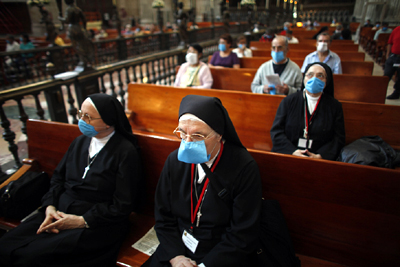Flu cases soaring across NYC; hospital ERs packed

nuns_B_swineflu13_AP_ Dario Lopez-Mills.jpg
Better get your flu shot while you still can, doctors warn.
Influenza is sweeping across the United States — and New York City is being hit especially hard, according to the Centers for Disease Control and Prevention (CDC) and the city’s Department of Health (DOH).
Across the city, hospital emergency departments are packed with patients suffering coughs, fevers and sore throats, and numbers are on their way up.